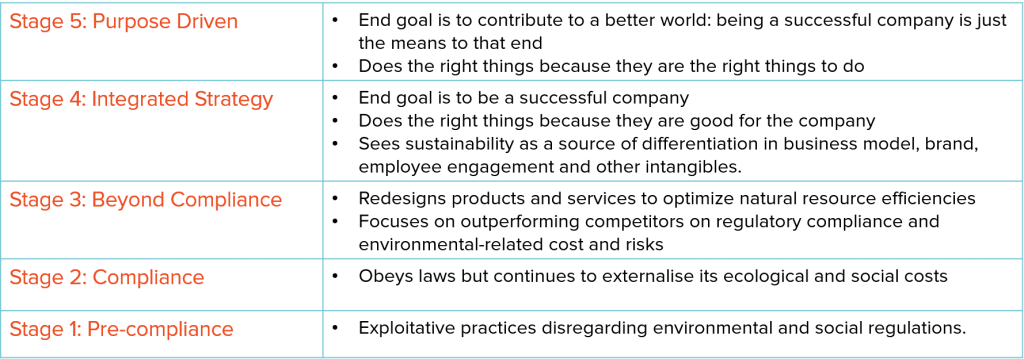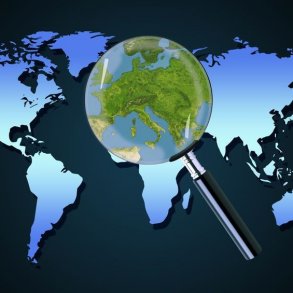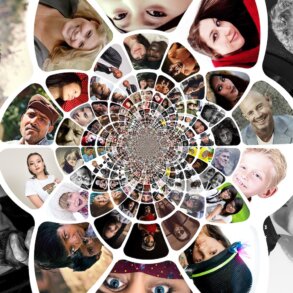It is old news: the planet is in crisis. The signs and warnings can be ignored, but the consequences are increasingly unavoidable. The media, though it may dance between the arguments of climate change affirmers and deniers, nonetheless presents a gloomy, foreboding future. So you could be forgiven for skipping this article thinking that it is yet another fear-mongering, guilt-inducing polemic. But hear us out: we are introducing a promising organisational approach that we believe can heal the rift between businesses and the planet.
Even though business organisations have contributed remarkably to the development of society, there is no dispute that their social and environmentally detrimental behaviours, including externalising costs; disregarding environmental consequences; neglecting their customers, suppliers, and employees; linear take-make-waste production methods; and policies that only implement environmental and social reforms if it is in their self-interest or legislation dictates it, have contributed to increasingly inequitable wealth distribution and growing social mistrust.
They have also led to the systematic degradation of ecosystems all around the world.
Encouraging Signs
There are emerging signs that certain business organisations are contributing to healing the socio-ecological system while also being financially viable businesses. Bob Willard, an expert in the business case for sustainability, claims organisations go through five different stages when approaching sustainability.
Most business organisations fall under Stages 2 and 3. However, business organisations believed to be in Stage 5, according to Willard are on the rise. This is encouraging, given Stage 5 organisations , such as benefit corporations and social enterprises, fully integrate sustainability into their policies, practices and procedures. They also see sustainability as the right thing to do and their CEO/founder appears to embrace a new paradigm that values sustainability.
Key drivers behind contributions of business organisations to the sustainability challenge
So if we understand and address some of the underlying causes that drive the majority of behaviours and actions (of stages 2-4), could we help the sustainable development of businesses and society as a whole?
During our research, we identified two key drivers that prevent this progression:
- A lack of a clear definition of what sustainability means and a strategic approach. The most popular definition of sustainable development comes from the Brundtland report published in 1987 which states that, “sustainable development is development that meets the needs of the present without compromising the ability of future generations to meet their own needs”. This definition captures the essence of what is required to achieve sustainability but it has also received significant criticism for being imprecise and impractical. Some believe this definition allows businesses to engage in unsustainable behaviour that may be perceived as sustainable.
- A predominant organisational paradigm which “separates mind and body, subject and object, culture and nature, thoughts and things, values and facts, spirit and matter, human and nonhuman” (Wilber 1995, 4). This dualistic and reductionist approach overlooks the complexity of the sustainability challenge. In the current predominant organisational paradigm, the primary purpose of business organisations is to maximize profits and to fuel capitalism rather than to serve humanity. Organisations operating from this paradigm tend to use a linear causal thinking model to explain phenomena in the world. Leading experts, including Otto Scharmer argue that linear causal thinking is unable to confront the increasing level of complexity of the global system and the associated challenges that come with it.
So what is required from business organisations to address the sustainability challenge?
Due to the size, complexity, and dynamism of the sustainability challenge, addressing it is not a simple task. We believe that in order to create sustainable businesses we need to first address the key drivers explored above. Researchers believe that a systemic lens that gives a clear definition of success and a strategic approach that can guide the evolution of entire social systems and their subsystems are needed. Additionally, they believe that every organisation in business, government and civil society will need to undergo an enormous shift in their thinking, cultures, practices and policies to reach sustainability.
In the words of the renowned environmental scientist and systems thinker Donella Meadows, “the transition to a sustainable society requires a careful balance between long-term and short-term goals and an emphasis on sufficiency, equity, and quality of life rather than on quantity of output. It requires more than productivity and more than technology; it also requires maturity, compassion, and wisdom.”
A Strategic Approach & Definition
With over 20 years of testing and refinement, the Framework for Strategic Sustainable Development (FSSD) provides a clear definition of sustainability together with a strategic approach. The definition is based on eight first order principles:
in a sustainable society, nature is not subject to systematically increasing concentrations of substances extracted from the Earth’s crust on the ecological side and that people are not subject to systematic barriers to their competence on the social side.
The FSSD is one of the most holistic and scientific approaches available for organisations to work with, providing an optimal balance of rigidity and flexibility for organisational change and monitoring.
A new Organisational Paradigm
Researchers from different disciplines, including Scharmer and Kaufer, Senge et al and Laloux, argue that business organisations need to adopt a new organisational paradigm in order to address the sustainability challenge.
One organisational model that is gaining traction globally is the Teal Organisational model, as described by Frederic Laloux in Reinventing Organizations. The entire business organisation is viewed as a living system and every member is an integral part of sustaining the delicate balance that is required to pursue its purpose. Teal organisations operate from a new organisational paradigm and have distinct practices, processes and structures around self-management, wholeness and evolutionary purpose that appear to naturally align with a Strategic Sustainable Development approach.
A number of very successful businesses that have adopted aspects of the Teal approach to organising ranging in size from a few dozen employees to more than 40.000 employees in a wide diversity of industries, often even outperforming other organisations in the same market segment. It is therefore not the type of business organisation that is the deciding success factor in implementing this model, rather the way the executive leadership approaches that implementation. The act of sharing power, status and responsibilities is not an easy one and the uncertainty that comes with such a commitment is understandably difficult to deal with.
One factor to consider is that all existing Teal organisations show a predisposition towards sustainability because their members are willing to prototype, learn and adapt- all things necessary in a complex world striving for sustainability. Does this mean Teal organisations have adopted or developed a strategic approach towards sustainability? And do they have the potential to become a truly sustainable business model?
Stay tuned to this blog, or subscribe to the newsletter, to read the results of our ground-breaking research which include key guidelines for organisations operating from or wanting to operate from the Teal organisational paradigm to aid the movement towards creating sustainable business organisations.
This blog is an extract from Dirk Propfe, Jenna McNeil and Oskar Schwarzin’s thesis on “Teal Organisations and Strategic Sustainable Development: A promising approach to transition businesses towards sustainability”. They have just completed a Master’s Programme in Strategic Leadership towards Sustainability at Blekinge Institute of Technology, Karlskrona, Sweden. We are grateful to Dirk, Jenna & Oskar for their energy, commitment and challenging minds and for asking us to participate, as an early stage Teal Organisation, in their research.
Featured





